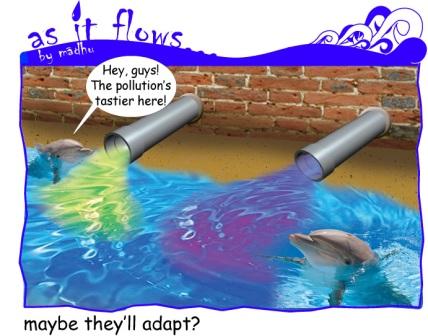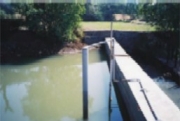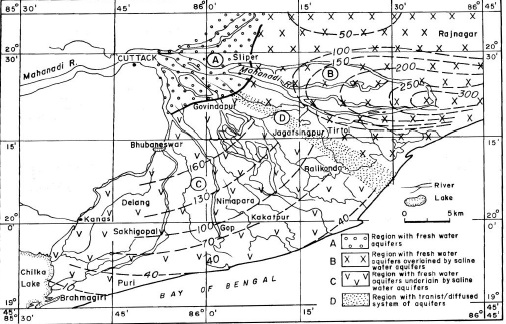/topics/governance
Governance
Project Boond - V, a comprehensive mitigation initiative in the drought prone regions of Bharatpur
Posted on 21 Jul, 2010 01:47 PMWith the failure of monsoons in Rajasthan and dry-up of the Bilaspur dam, the water situation assumes graver proportions in most parts of Rajasthan, besides Jaipur, Tonk and adjacent districts. These areas, now in the news for acute water shortage problems, have always depended upon monsoons for their traditional rainwater-harvesting systems and the riverine sources.
While the Government has taken remedial measures with construction of tube-wells across the rural and drought-prone areas, they have been sporadic and insufficient at their best. Merely announcing relief measures and planning of schemes on paper as an immediate disaster management strategy are not solutions to mitigation of water problems in this State.
Prof G.D. Agrawal resumes fast unto death to save the Ganga, Swami Avimukteshwaranand and others to join in support
Posted on 21 Jul, 2010 11:10 AMForwarded to the Portal by: Ayan Biswas
Image and News Courtesy:
Shankracharya designate Swami Avimukteshwaranand ji presided over an emergency meeting organized by Manushi Sangathan, Ganga Ahvaan and Ganga Yamuna Jal Biradri to express our strong protest against the patently illegal decision of the Group of Ministers giving clearance to the Loharinag-Pala dam on the Ganga River. The following expert members of the NGRBA also participated in the meeting to express their strong protest having been kept in the dark about the appointment of the GoM which has passed a virtual death sentence on the most sacred river of India: Rashid Hyatt Siddiqui, Rajendra Singh, Rama Raota and Ravi Chopra.
Synergos Fellowship for NGOs working for the Poor
Posted on 21 Jul, 2010 10:43 AMImage and Content Courtesy: Synergos
The Senior Fellows Network is comprised of distinguished international civil society leaders committed to collaborative efforts that address the underlying causes of poverty and inequity.
Environment flows - Continuing the discussion
Posted on 21 Jul, 2010 12:41 AM
Augmenting groundwater resources by artificial recharge: A case study - Kolwan valley - A report by ACWADAM
Posted on 19 Jul, 2010 04:45 PM This report by ACWADAM describes the results of a research study conducted under the DFID funded AGRAR project at the Kolwan site in Pune district of Maharashtra state in India. The research focused on studying the usefulness of artificial recharge to augment groundwater resources through watershed development.
This report by ACWADAM describes the results of a research study conducted under the DFID funded AGRAR project at the Kolwan site in Pune district of Maharashtra state in India. The research focused on studying the usefulness of artificial recharge to augment groundwater resources through watershed development.
An important criterion of the study was also to understand the impact of artificial recharge on already changing livelihoods in areas where watershed development was conducted on a large scale.
Need for real-time DSS for flood management
Posted on 13 Jul, 2010 01:07 PMFloods are common in most parts of India particularly during the monsoon season. Flood control and mitigation involves flood plain mapping, zoning, insuring and warning systems as floods cannot be avoided. These measures minimize damage and loss in terms of life and property. In this regard real-time data based decision supports systems (DSS) are crucial for effective flood management.
Seeds of hope - Case studies from the Planning Commission and Lokayan
Posted on 12 Jul, 2010 03:33 AMThis set of case studies is part of a book prepared by Lokayan in collaboration with the Planning Commission titled “Seeds of Hope", covers themes of agricultur
Accelerated Rural Water Supply Programme: CAG performance audit report (2008)
Posted on 12 Jul, 2010 01:18 AMThe performance audit report of the Accelerated Rural Water Supply Programme (ARWSP) for the period April 2002 to March 2007, conducted by the Comptroller and Auditor General (CAG), reveals numerous deficiencies in execution and implementation of works such as cases of time and cost-overrun, non-completion & delayed completion of works, non-functional & defunct works, delayed completion & non-completion of water quality mission projects, incorrect prioritization of works, wasteful and unfruitful expenditure, and expenditure on unapproved items.
A study of saline freshwater interface phenomena in the Mahanadi delta region (Orissa)
Posted on 10 Jul, 2010 10:40 PM The subsurface aquifer systems in Mahanadi delta region in Orissa (India) is largely characterized by two groups of freshwater aquifer systems, both of which are prone to saline water mixing/migration with time and development:
The subsurface aquifer systems in Mahanadi delta region in Orissa (India) is largely characterized by two groups of freshwater aquifer systems, both of which are prone to saline water mixing/migration with time and development:
- The south western Mahanadi delta region is represented by unconfined to semi-confined freshwater aquifers underlained by brackish/saline aquifer systems with a diffusion boundary.
- The north eastern parts of Mahanadi delta is represented by deep freshwater confined aquifers overlained by brackish/saline water aquifers with aquitard/ aquiclude boundary.
Draft regulatory framework for wetlands conservation - Comments by ATREE
Posted on 09 Jul, 2010 11:49 PMThe Ministry of Environment and Forests released a draft of the regulatory framework for wetland conservation - Wetlands Conservation and Management Rules (2009) for feedback from all stakeholders. The draft framework was prepared by a multi-disciplinary expert group, and final round of comments were invited till June 21st 2010.
The Wetland Conservation Team of Ashoka Trust for Research in Ecology and the Environment (ATREE) did a detailed analysis of the draft regulation and submitted several pertinent concerns to the Ministry. The most significant observation is that the new framework (as do much of India's policies and laws) continues to propose unjustifiable State control and interventions over the country's wetlands and livelihoods of people dependent on them. The regulation does not make any constructive suggestions or recommendations for the conservation that the country's wetlands demand, and instead brings all wetlands into complete official control by installing Central, State and District-level wetland regulatory authorities, wherein the majority of the members will be senior government officials.






